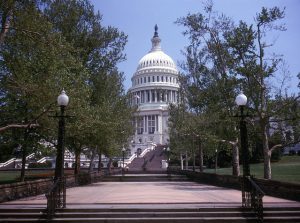In January, the state of California kicked off an online rollout of its marijuana inventory tracking system. At a glance, marijuana businesses across the Golden State appear to be successfully reporting product inventory each day, via the California Cannabis Track-and-Trace (CCTT) system. But not without some growing pains.
To start, the idea of tracking marijuana traveling throughout the supply chain sounds simple enough. In theory, all cannabis products would be given unique identification numbers, noting from which ‘batch’ or ‘lot’ they were born. Products would then be sent to labs for testing. Next, approved products would be passed from producer to distributor, and finally to retailers for sale. At each step, the state should be able to track each piece of marijuana as it moves through the chain, making sure nothing is being redirected out of state, and ensuring everybody is paying their required taxes.

But in practice, a few hiccups quickly come to light. First up, only businesses holding ‘provisional’ or ‘annual’ licenses are required to subscribe to the track-and-trace system. And until last month, there were more than 600 marijuana businesses operating on ‘temporary licenses,’ who would not have had to track-and-trace. This means, there was no way regulators could comprehensively account for every legal product moving about the state.
Continue reading
 California lawmakers, in late January, breathed new life into a proposal that could cut the state’s taxes on marijuana for the short term, to help boost the struggling legal market.
California lawmakers, in late January, breathed new life into a proposal that could cut the state’s taxes on marijuana for the short term, to help boost the struggling legal market. Cannabis Law Group's Medical Marijuana Legal Blog
Cannabis Law Group's Medical Marijuana Legal Blog





 As California’s legal marijuana industry continues to bloom, so too does a well-stocked black market, comprised of unlicensed, locally grown cannabis, and a plethora of counterfeit cannabis products.
As California’s legal marijuana industry continues to bloom, so too does a well-stocked black market, comprised of unlicensed, locally grown cannabis, and a plethora of counterfeit cannabis products.



 Washington, where requirements for marijuana businesses are strict, yet muddled. What started as a residency restriction meant to control big outside mega corporations from putting local businesses at a disadvantage has led to corporations researching ways to exploit residency loopholes and limiting who longtime residents can bring on as partners. Now, due to unclear definition of what qualifies a person for residency, some are concerned how to prove their status.
Washington, where requirements for marijuana businesses are strict, yet muddled. What started as a residency restriction meant to control big outside mega corporations from putting local businesses at a disadvantage has led to corporations researching ways to exploit residency loopholes and limiting who longtime residents can bring on as partners. Now, due to unclear definition of what qualifies a person for residency, some are concerned how to prove their status. equally important, but less discussed, element is security. Considering some security measures are actually built into the regulations for marijuana businesses, this is certainly not something to be taken lightly.
equally important, but less discussed, element is security. Considering some security measures are actually built into the regulations for marijuana businesses, this is certainly not something to be taken lightly.  world’s largest marijuana market. California Growers Association, based in Northern California, is merging with Southern California Coalition out of Los Angeles to leverage their combined strength when voicing needs of the cannabis industry to political representatives, according to
world’s largest marijuana market. California Growers Association, based in Northern California, is merging with Southern California Coalition out of Los Angeles to leverage their combined strength when voicing needs of the cannabis industry to political representatives, according to